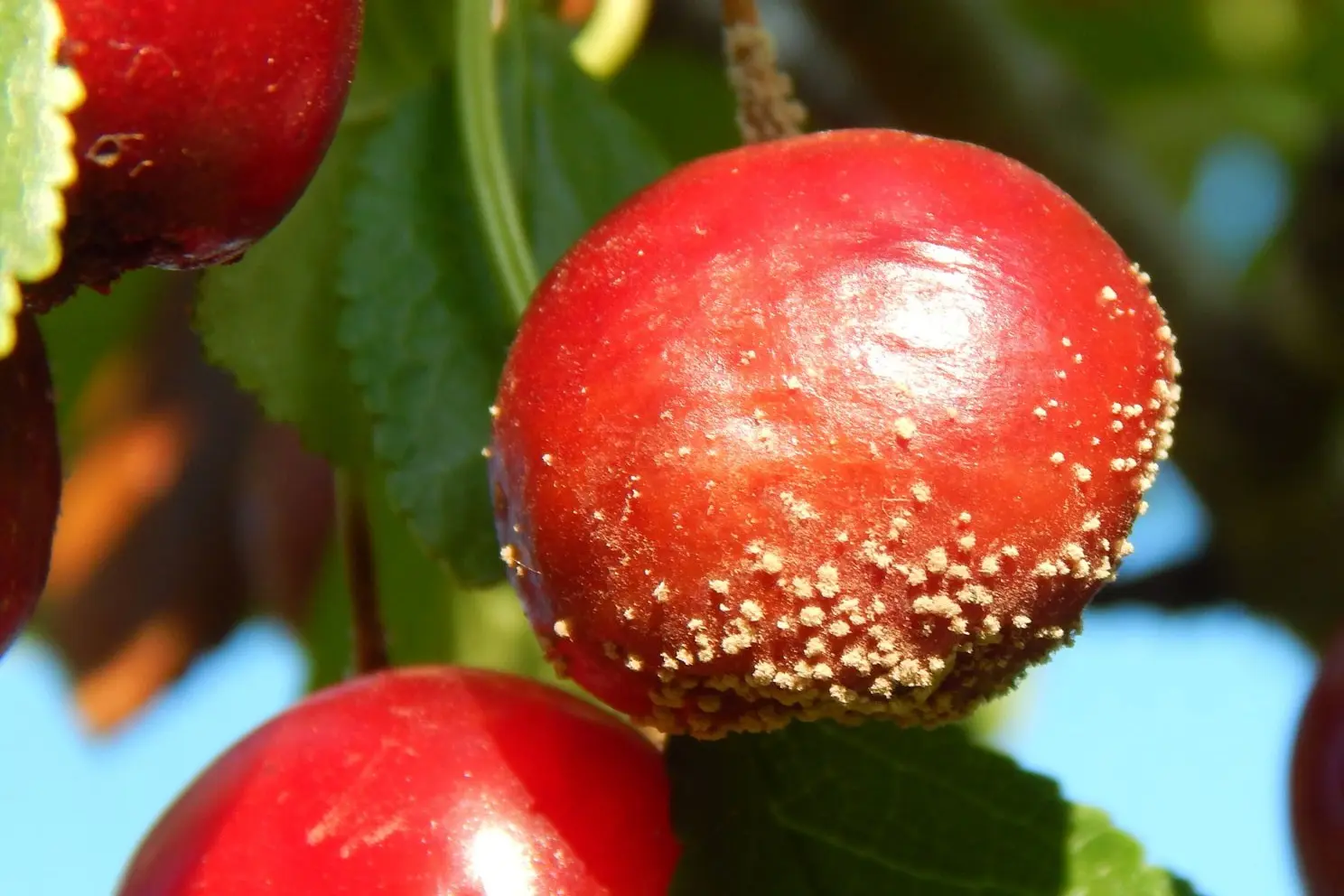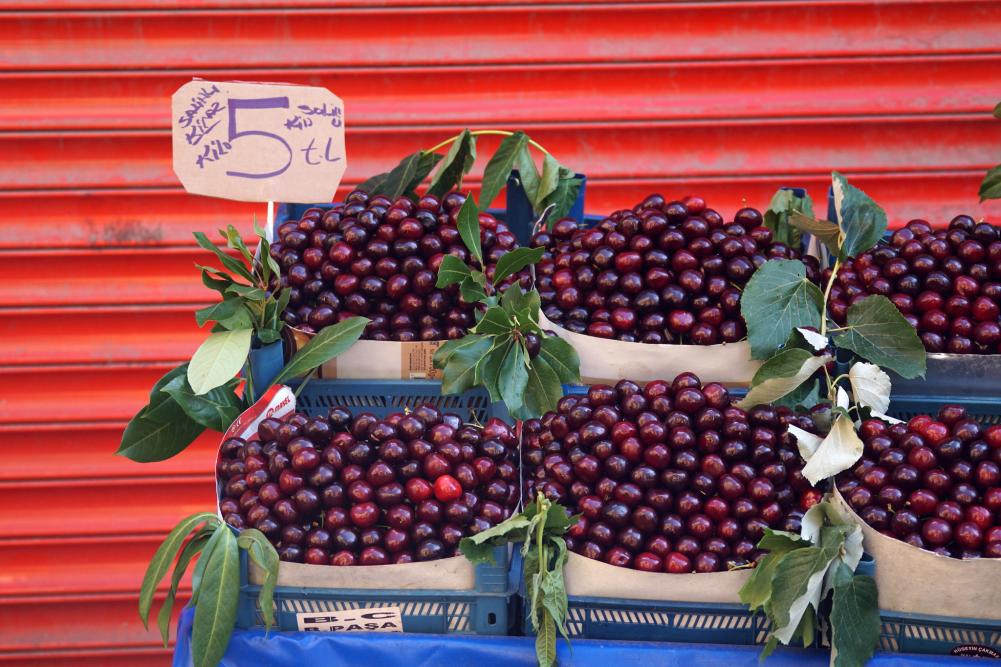The Biodynamic segment is still a niche reality in Italy, even more so in the cherry sector. However, this type of approach to cultivation produces interesting results even for a delicate fruit like the cherry, as demonstrated by the project of the Simonetta farm in Lizzano di Cesena (IT).
The owner Enzo Trapani and his wife Simonetta have developed, together with Apofruit and Almaverde Bio, a cherry orchard entirely dedicated to biodynamic production, which covers 12 hectares and yields more than 50 tonnes per year.
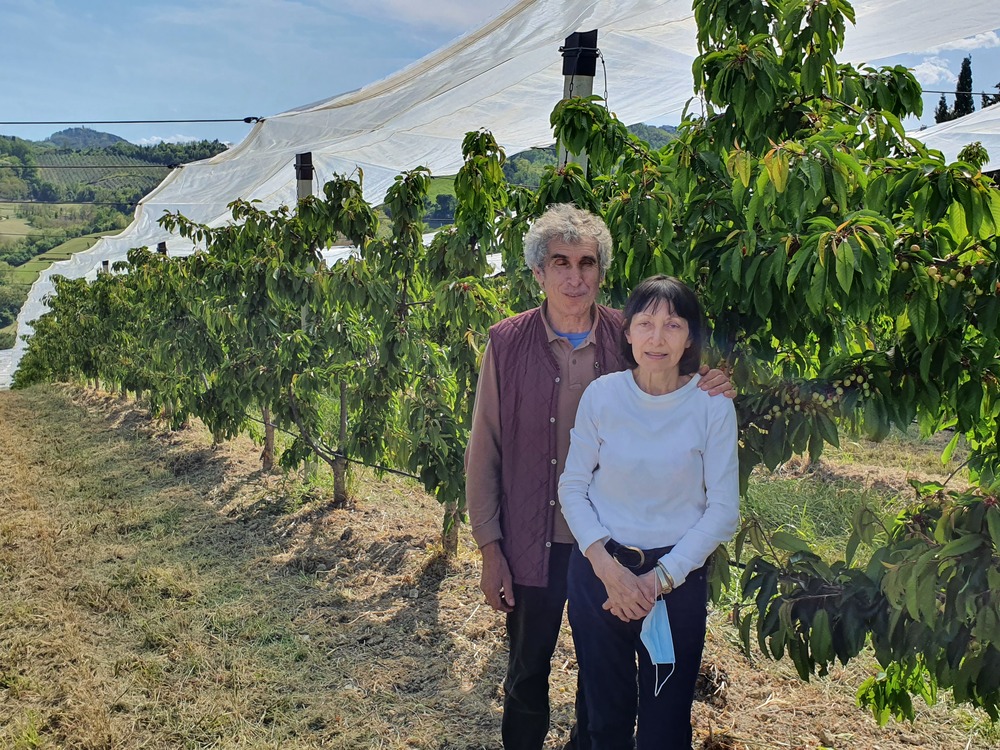 Image 1 - Enzo e Simonetta Trapani
Image 1 - Enzo e Simonetta Trapani
"Our company is located in Cesena, with 17 hectares of cultivated land. Of these, 12 are dedicated entirely to cherry production, with production based entirely on the biodynamic approach. Obviously there were several evaluations and considerations when setting up the plant, first and foremost the need for water, which we were able to bring here to this area for irrigation years ago'.
"Added to this are all the critical issues and differences that concern Biodynamics in the strict sense, such as fertilisation and phytosanitary aspects".
What choices have been made at the varietal level and what impact have these choices had on a Biodynamic approach?
"As far as the variety question is concerned, we have relied entirely on Sweet varieties. From Sweet Aryana, to Sweet Lorenz or Saretta, these are all varieties that lend themselves very well to this type of cultivation. Last year we evaluated an investment of 1400 plants of Sweet Dave, which was repeated this year with 800 plants of the same variety".
"From a biodynamic point of view, I cannot say that these are the only varieties suitable for the type of cultivation, but it was not strictly an agronomic decision. It is really a decision related to the fruit. We are talking about a high grade, valuable and sought-after product: high calibre, crisp flesh, with excellent properties not only from an organoleptic point of view but also aesthetically'.
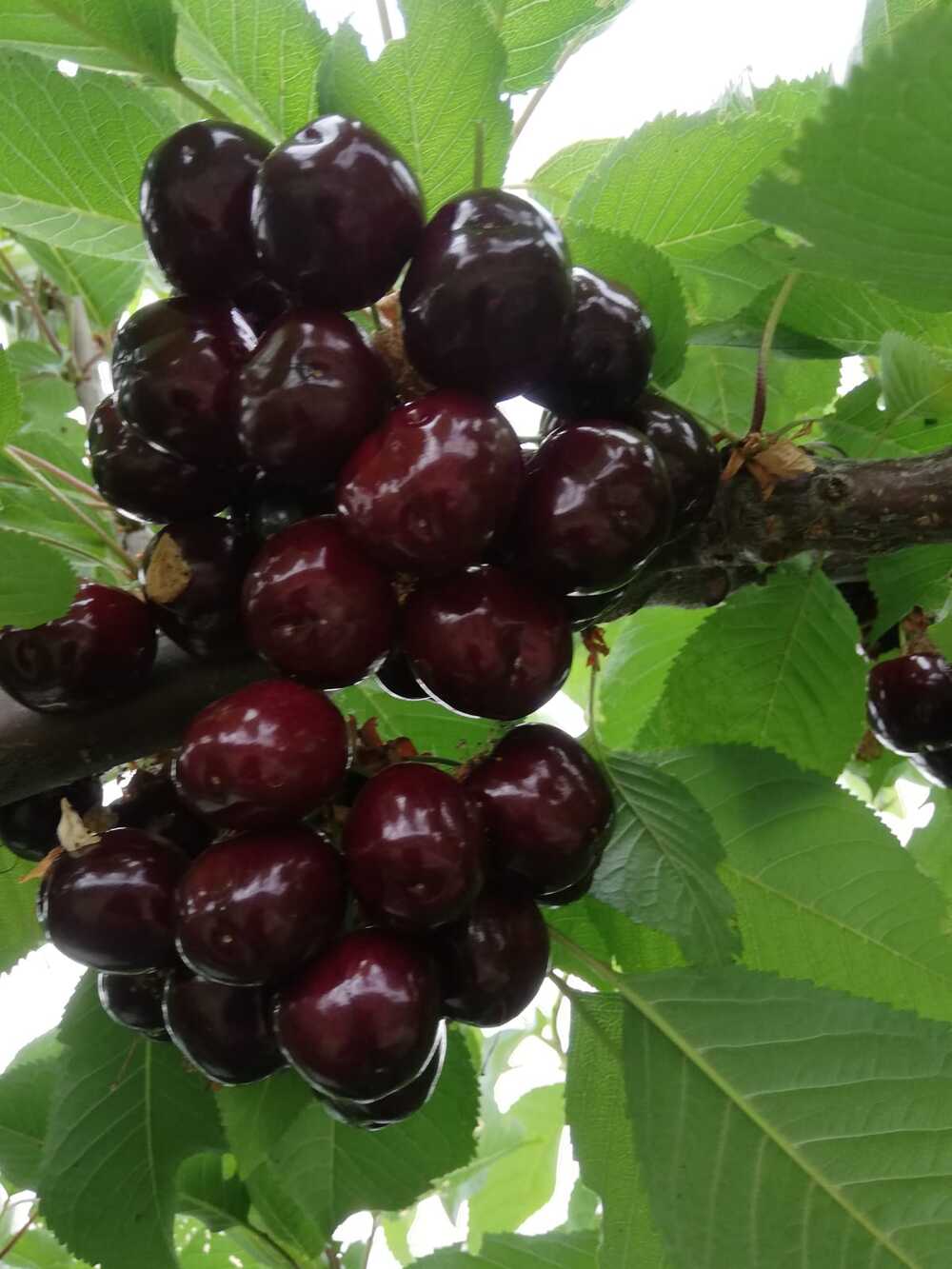
What type of planting system is used?
"All varieties are grafted onto dwarfing Gisela 6 rootstocks, with a density of 1,250 trees per hectare. To ensure a good harvest we of course use rain covers, single-row, to which we have also added insect-proof covers that enclose the plants all the way down to the ground once opened. This measure is also necessary to overcome the all common problem: Drosophila suzukii: without total enclosure very little can be done".
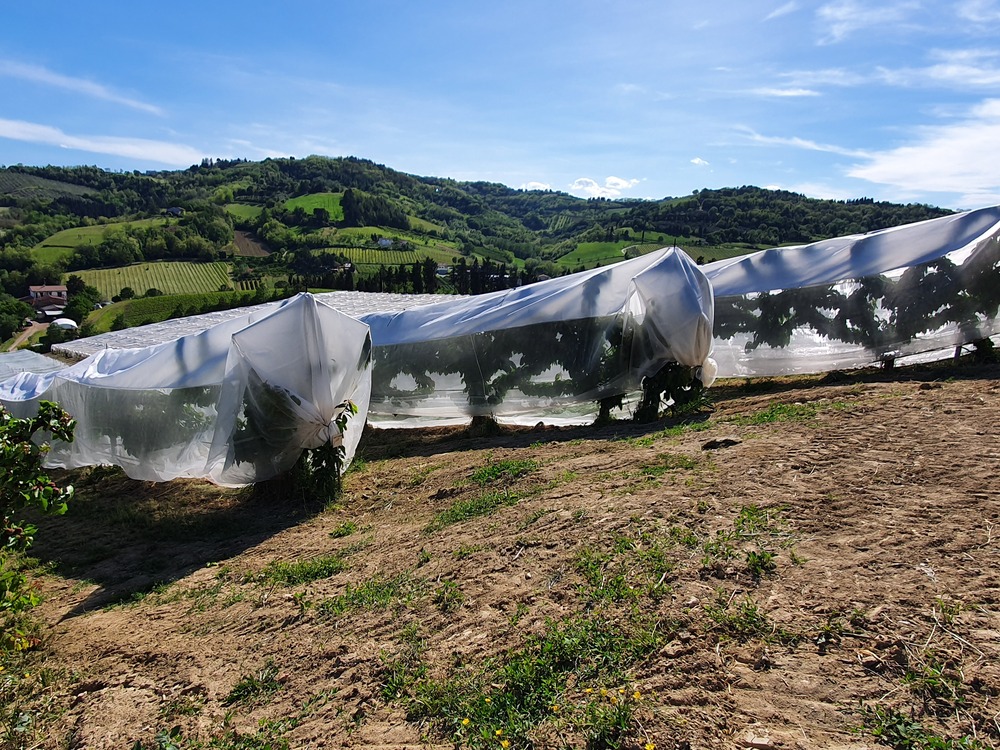
Speaking of yield, what is the output of such a planting system?
"We start from the assumption that, compared to a standard segment, with biodynamic we cannot expect a similar amount of production. However, there is a lot of satisfaction, also in terms of numbers. Last year, for example, the harvest forecast was over 50 tonnes. Unfortunately due to some complications, especially the non-uniformity of the harvest, we were just over 30 tonnes'.
"This year, unfortunately, due to poor weather conditions we did not get more than 12 tonnes of harvest. The rain really ruined a season with great potential. Without the covers, we wouldn't have even got our hands on the plants".
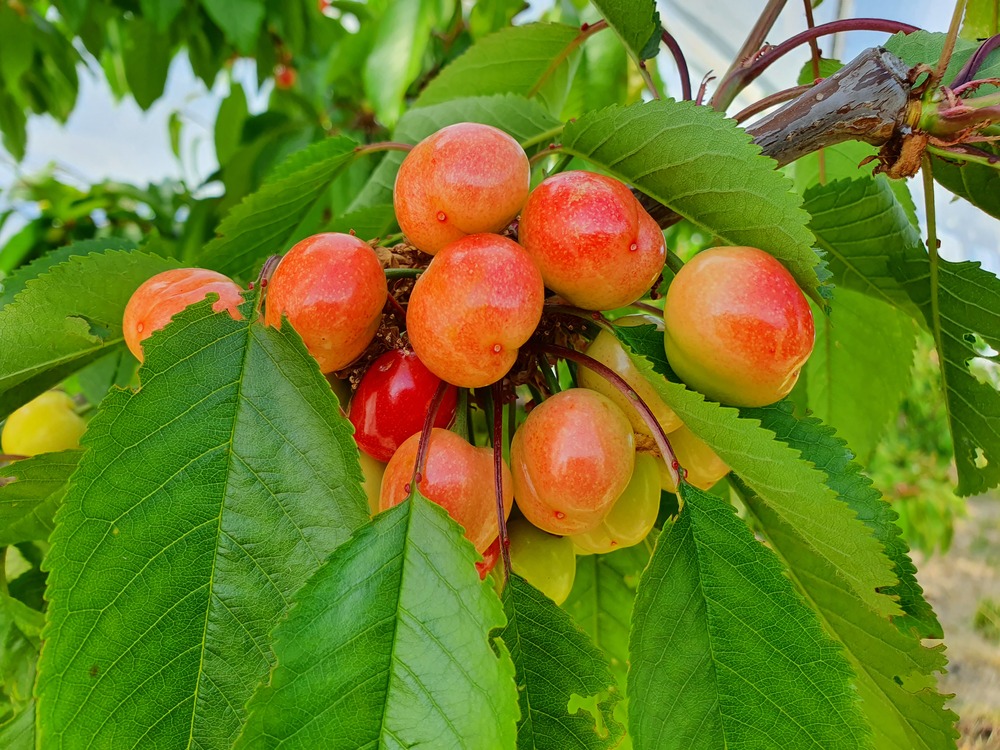
What critical issues have been addressed and what are expected in the future?
"I think it is well known by now that the biodynamic approach places a high importance on the soil rather than on the phytosanitary aspect. The aim is not to use any chemicals, but to base all work on completely natural products. For example, we only use natural products for fertilising, such as cow manure or leaf fertilisers, mainly nettle fertiliser. Nettle is also used as an anti-aphid".
"This of course makes it possible to cultivate according to a sustainable and environmentally friendly process, but on the other hand it also entails certain disadvantages towards the problems of modern cultivation. As far as we are concerned, however, even at the varietal level we have not encountered any major problems. The only note, perhaps, may be a higher percentage of cracking due to the crispness of the Sweet varieties,' he says.
"Again, I believe that another big modern problem, that of labour, can be totally avoided thanks to the new dwarfing rootstocks. Since we don't have very large plants, we don't even need to use special equipment. We harvest everything from the ground. This contributes to two very important factors: firstly, it attracts more people during the harvesting period, but above all, it is not even necessary to employ workers with special types of experience because you don't need to use ladders or special equipment to harvest in these conditions.
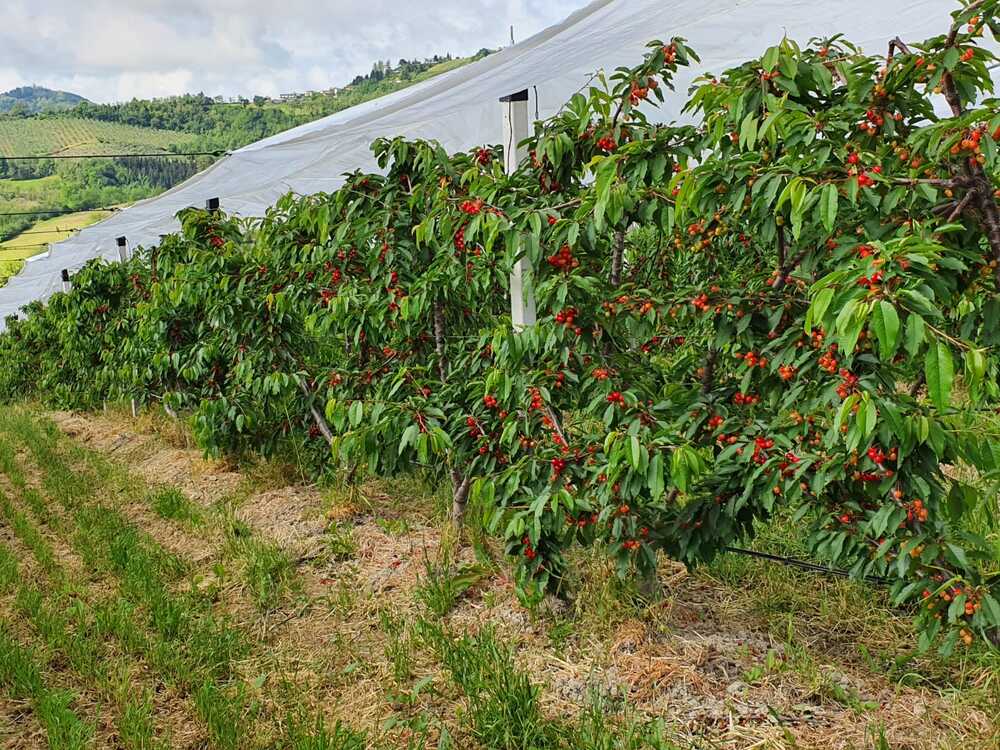
"On the other hand, the terrain and soils in these areas are also clay and sandy, so a possible problem could arise due to the flexibility of the fertilisers that can be used. But even then, we work very well on heap and fertiliser. Preparation starts already in October, fertilisation in the spring period. Having early and medium-early varieties, we have to be ready to harvest as early as the beginning of May. This year, we finished on June the 8th".
"Contrary to what one might think, however, the satisfaction we get from production like this is priceless. We harvest a unique product. In Italy, if I'm not mistaken, there are a total of 30 hectares of biodynamic cherry orchards and we represent 12 of these hectares."
"We are very happy to bring a truly admirable product to the table, both in terms of taste and aesthetic qualities, also supported by the total lack of plant protection products: we are talking about a healthy and at the same time sustainable product, a prerogative that we feel is really important nowadays".
Cherry Times - All rights reserved










